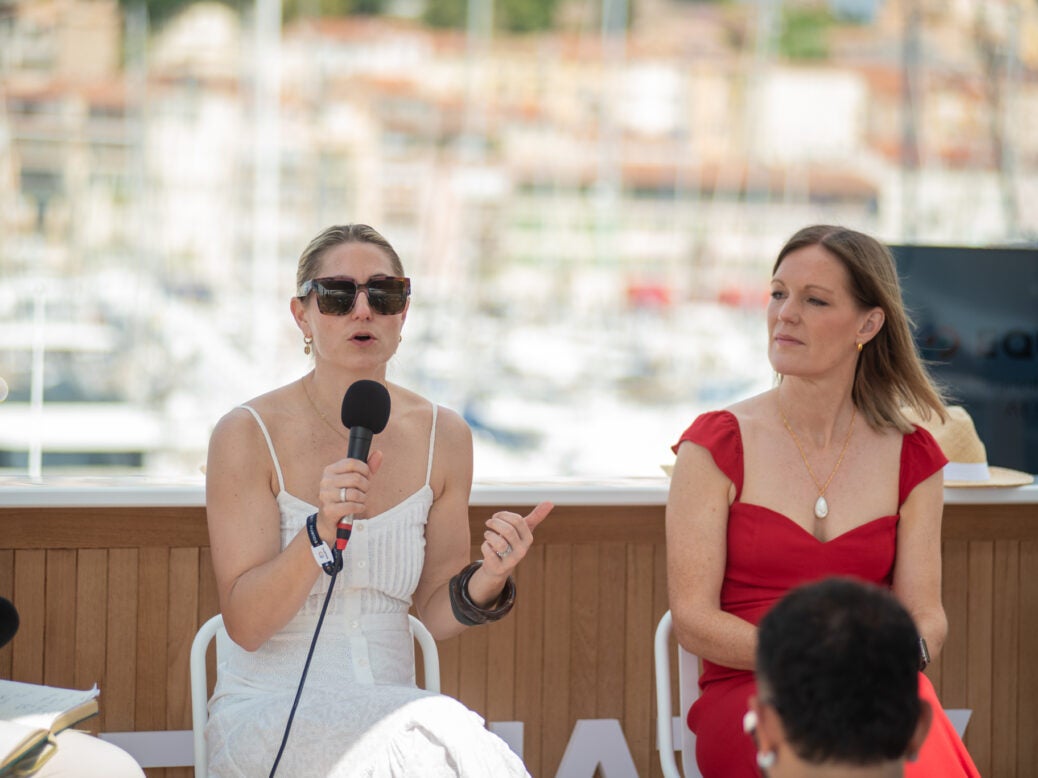
Marketers have been accused of favouring risky advertising on social media platforms over safer and more effective news advertising.
The issue of brand safety was on the agenda at a number of fringe events held during the Cannes Lions festival.
Concerns from marketers about advertising appearing next to negative stories has led to billions of pounds worth of advertising leaving journalism outlets in the UK and US.
Speaking at a panel chaired by Press Gazette and hosted by advertising technology company Equativ, BBC Studios VP for marketing and growth Sam Mellor said publishers need to become more strident about challenging misplaced brand safety fears.
She said: “We need to change the conversation. News is continually put in a position where we are having to defend ourselves against brand suitability and against brand safety, the premise of which is false.
“There is not proven negative association with a brand that advertises in news. In fact, it is quite the opposite. Countless data proves that in fact a brand is seen as more trustworthy, as innovative and people are more likely to buy and recommend a brand if they invest in news.”
The BBC sells advertising on its website in the US and other territories outside the UK via the BBC Studios division.
Mellor said: “We need to come to the table with swagger. If you advertise in news, you’re going to see high returns.
“We see plus 80% lifts in likelihood to recommend, likelihood to be seen as trustworthy, likelihood to be seen as an innovative brand for advertisers that work with us and spend in our ecosystem, and that’s how we change the dialogue.
“If you want to reach the most influential, the most premium and the most valuable audiences then you come to organisations that are providing that information that allows them to make business decisions, that allows them to make shopping decisions, that allows them to make travel decisions, and arguably, guides where they spend their money.”
Sky Media director of planning Sarah Jones chairs the News Alliance, a cross-industry body which trumpets the benefits of advertising next to trusted news.
She said: “On social media in particular, anybody can upload anything at any point, and any advertising can end up next to that.
“We’ve seen some shocking cases of ads coming up next to child porn abuse
“With press the worst thing that could happen is if you are buying an ad for BA and it ends up next to a plane crash. There’s editorial oversight in journalism and news that stops that type of thing from happening.
“The challenge is that when you advertise in digital, when you’re not buying through a news organisation, you end up in a place where you are actually supporting terrorism, or you’re actually supporting the people who are making content that isn’t regulated, that hasn’t been produced by journalists.
“Consumers are not stupid. They understand that if you’re advertising next to an article that’s about Donald Trump, that doesn’t mean you endorse Donald Trump. It just means you’re supporting the journalists that are finding out the news about Donald Trump.”
Chief operating officer of Equativ Jean-Christophe Peube said: “With news, we know that users actually spend more time reading the content and have a better time looking at it than potentially on clickbait made for advertising content or other properties that are of lower quality. And so what we try to do at Equativ, is offer a platform where buyers can buy what they want, but there are specific filters that let them make the right decisions instead of going for the fast and easy decisions, but that may not be the right ones.”
Google and Meta alone accounted for around £26bn of UK advertising spend in 2024 versus just over £1bn which was spent all national and regional newsbrands combined.
Advertising agency Stagwell spends around $5bn per year on marketing for its clients and is urging them to spend at least 3% of their media buy on news.
Speaking on another Cannes panel hosted by Dow Jones, Stagwell CEO Mark Penn said: “We really feel that we don’t want to leave their dollars on the table if they haven’t at least tried it. We want to make it easy, and we want to make it profitable. And I genuinely think there are good buys there.”
Email pged@pressgazette.co.uk to point out mistakes, provide story tips or send in a letter for publication on our "Letters Page" blog
